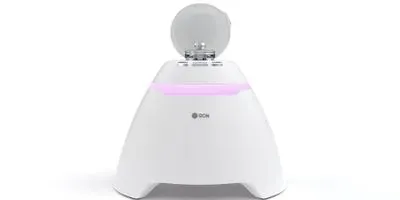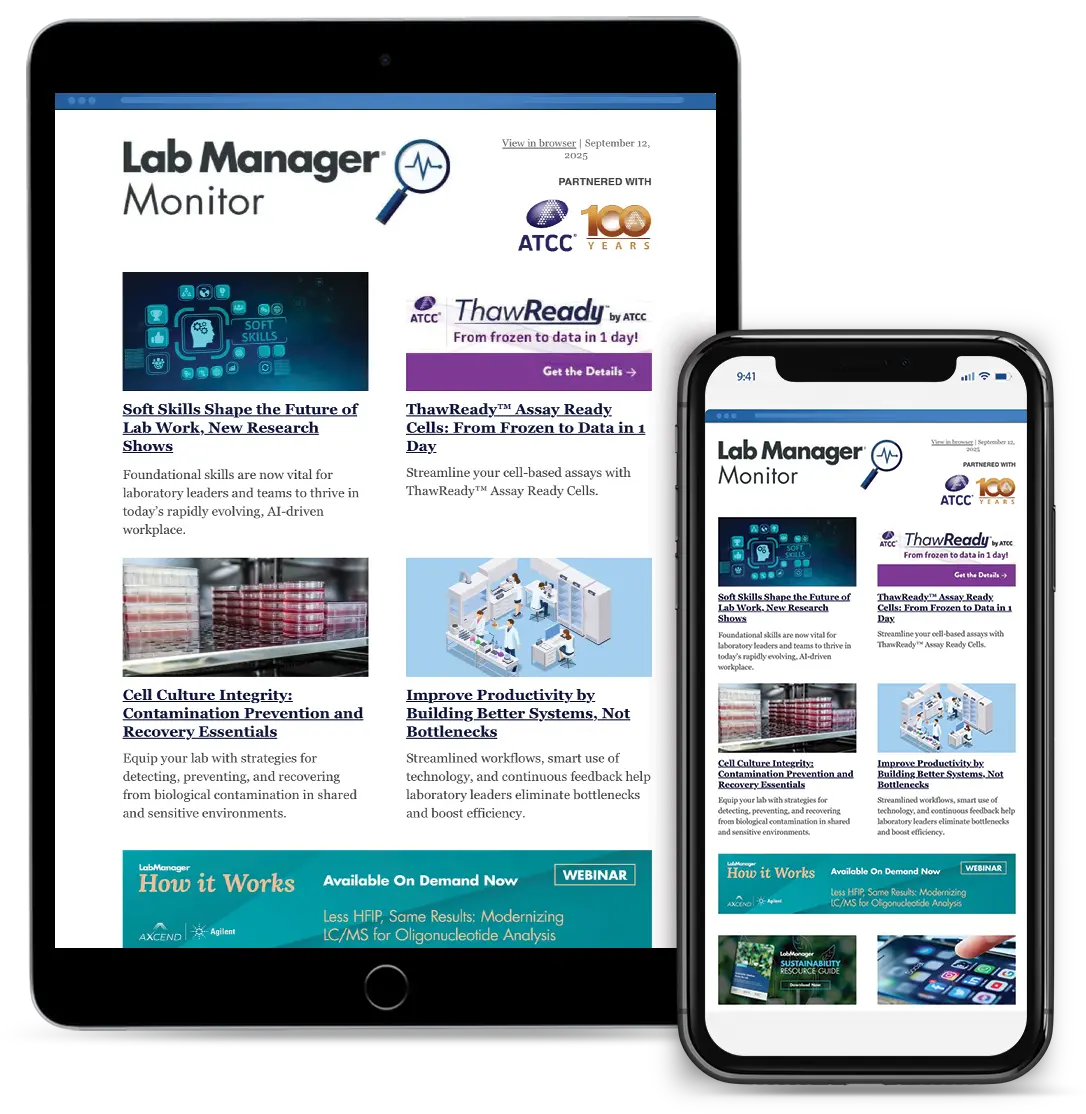CHRISTCHURCH, NZ — March 23, 2021 — Izon Science Ltd announced the worldwide launch of its latest nanoparticle measurement device, the Exoid. This new-generation instrument improves the existing and widely used tunable resistive pulse sensing (TRPS) measurement method by automating many of the previously manual user inputs and adding new CPUs and electronics.
Measuring particle size, concentration, and charge with much higher resolution and precision than traditional light-based systems, TRPS enables researchers to analyze complex samples of nano-bio particles—including extracellular vesicles (EVs), viruses, liposomes, and nanomedicine products.
The new Exoid replaces Izon’s existing qNano instrument, which has gained recognition over the last 10 years as the highest-resolution and most accurate method for measuring complex biologicals in the nano size range. The qNano has been used by thousands of scientists in over 45 countries and is featured in around 1500 scientific publications.
Hans van der Voorn, CEO of Izon Science, says the Exoid will open up nano-biological research areas that haven’t been previously possible at this scale and accuracy.
“We’re excited that after years in development, the Exoid is now rolling out globally. The improved workflow and sensitivity will be a big step up for researchers working to solve nano-scale problems. It is aimed squarely at providing accuracy, reproducibility, and a “real” measurement,” says van der Voorn.
“With the launch of the Exoid, we expect TRPS to become the global standard for bio-nanoparticle analysis—given that it is the only accurate method for measuring the three fundamental properties of complex nano-bio particles, being size, charge, and concentration. Previously this level of precision came with a steep learning curve and user skill, but the Exoid is much easier to operate than the qNano,” he says.
The Exoid’s significant usability and performance improvements come shortly after a comparison study was published in the Journal of Extracellular Vesicles, showing TRPS was significantly better than popular light-based techniques at measuring particle concentration and size. Most of these were shown to have low resolution and/or insufficient accuracy.
The Exoid hardware has been designed from the ground up to improve signal-noise, which delivers significant performance improvements compared to the previous qNano instrument. Accuracy has been improved across the board.
Van der Voorn says, “The precision of particle-by-particle charge measurement in particular is now at a new level, never seen before. The potential applications of that aspect are not fully known yet.”
The Exoid also comes with new, more intuitive software that guides the researcher through the measurement process. By continually monitoring the baseline current, applied pressure, and blockade size, the system can carry out optimizations without the need for user intervention. The Exoid’s combined hardware and software improvements also allow for three-dimensional modeling of particle size, concentration, and zeta potential.
Van der Voorn says, “Three-dimensional measurements of particle size, concentration, and charge will be a world-first. When we release this functionality via a software update later this year—we expect it to be a transformational development for a number of research areas.”
Izon Science serves blue-chip research customer institutes in over 50 countries, including all of the top 10 medical research institutes, nine of the top 10 pharmaceutical companies, and 49 of the top 50 US universities. Its tools include measurement and nano-biological separation. A particular interest area is extracellular vesicles, including exosomes, and their potential roles as powerful biomarkers and as new therapeutics. Researchers worldwide are also using the information on virus characterization and concentrations from Izon’s nanotech tools to better understand COVID-19 and other viruses.
Beta versions of Izon’s Exoid are currently being tested externally with customers, with production units set to start shipping shortly. For more information visit: www.izon.com













